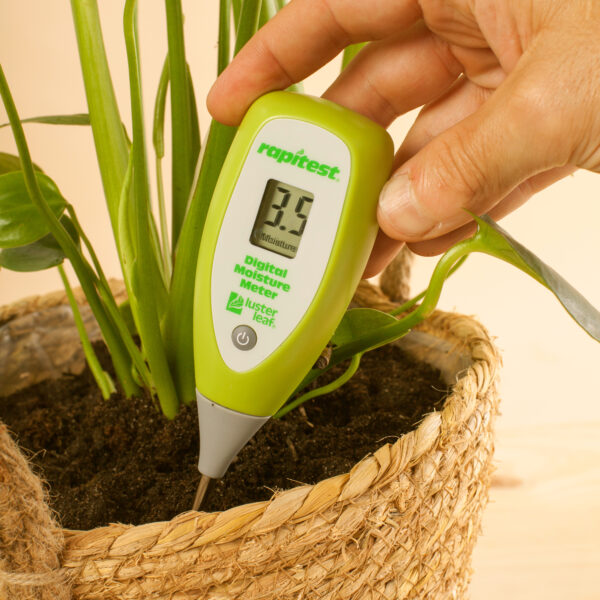The Ultimate Overview to Wetness Meters: A Comprehensive Introduction and How They Can Conserve You Cash
Dampness meters serve as important devices in spotting and monitoring moisture material in products, assisting in stopping costly damages and making sure the top quality of products. Recognizing the subtleties of different kinds of wetness meters, their applications, and the potential cost-saving advantages they offer can be a game-changer for companies and experts alike.
Kinds Of Dampness Meters
Various kinds of wetness meters are readily available for various applications in numerous sectors. One common type is the pin-type moisture meter, which determines the electric resistance in between 2 pins put right into a material. This kind is ideal for timber, drywall, and various other building products. Pinless moisture meters, on the various other hand, usage electromagnetic sensing unit plates to check a bigger location without triggering damages to the product's surface. Moisture Meter. These meters are suitable for quickly assessing wetness degrees in big locations such as floorings and walls.

In addition, there are also specialty moisture meters designed for certain products like soil, hay, or grain. These meters provide exact wetness analyses tailored to the unique residential or commercial properties of the product being examined. Infrared wetness meters measure the thermal properties of a material to establish its wetness web content non-invasively, making them beneficial for applications where pin or pinless meters may not be appropriate. Understanding the various sorts of dampness meters available can aid industries select one of the most proper tool for their certain moisture dimension demands.

Benefits of Using Dampness Meters
Wetness meters offer invaluable benefits in accurately keeping an eye on and analyzing wetness levels in diverse products and settings. One of the key benefits of using moisture meters is the avoidance of potential damages created by excess dampness.
Furthermore, using wetness meters can lead to raised power performance. In farming setups, moisture meters play an essential role in enhancing plant returns by making it possible for farmers to keep track of soil dampness degrees and make educated watering decisions.
How to Select the Right Wetness Meter
When selecting a moisture meter, it's important to make sure that the meter is appropriate for the particular material you will certainly be testing. Different products have varying electrical residential properties that can impact wetness readings, so picking a meter developed for your material is critical for exact results. By carefully reviewing these elements, you can pick a wetness meter that meets your demands and offers accurate wetness measurements for your projects.
Proper Strategies for Wetness Meter Usage

Expense Cost Savings Through Dampness Meter Applications
Just how can the strategic usage of moisture meters lead to substantial expense financial savings throughout various sectors? In the agriculture industry, wetness meters help in identifying the optimum time for gathering crops, protecting against excess or over-drying moisture that can affect the last product's high quality.
Similarly, in building, moisture meters assist prevent expensive damages by finding moisture levels in structure materials, such as wood or concrete, which can bring about structural problems otherwise addressed immediately. By identifying problem locations early on, service providers can take corrective procedures to stay clear of comprehensive fixings or replacements, eventually conserving money and time.
Additionally, in the food handling sector, dampness meters are crucial for keeping track of item high quality and ensuring compliance with security laws. By accurately determining wetness web content in food items, manufacturers can avoid wasting, keep quality, and minimize waste, my latest blog post leading to significant cost savings. In general, the calculated application of dampness meters is a beneficial financial investment that can cause considerable price reductions and improved efficiency throughout various sectors.
Conclusion
In verdict, dampness meters are useful devices for identifying and gauging moisture levels in different materials. By utilizing the appropriate dampness meter and complying with correct techniques, individuals can successfully avoid expensive damages triggered by excess wetness. Buying a quality dampness meter can lead to considerable cost financial savings in the long run by determining potential problems at an early stage and enabling prompt remediation. Ultimately, moisture meters are necessary tools for preserving the stability and durability of structures and products.
Dampness meters serve as crucial tools in detecting and checking moisture material in products, aiding in stopping pricey problems and guaranteeing the top quality of products. Infrared moisture meters determine the thermal residential properties of a material to identify its dampness material non-invasively, making them valuable for applications where pin or pinless meters may not be ideal.Moisture meters use invaluable advantages in properly assessing and keeping an eye on wetness degrees in diverse materials and atmospheres. In farming setups, wetness meters play a crucial role in maximizing plant yields by enabling farmers to keep track of dirt dampness degrees and make educated watering choices.In final thought, moisture meters are beneficial tools for measuring and identifying dampness levels in numerous products.